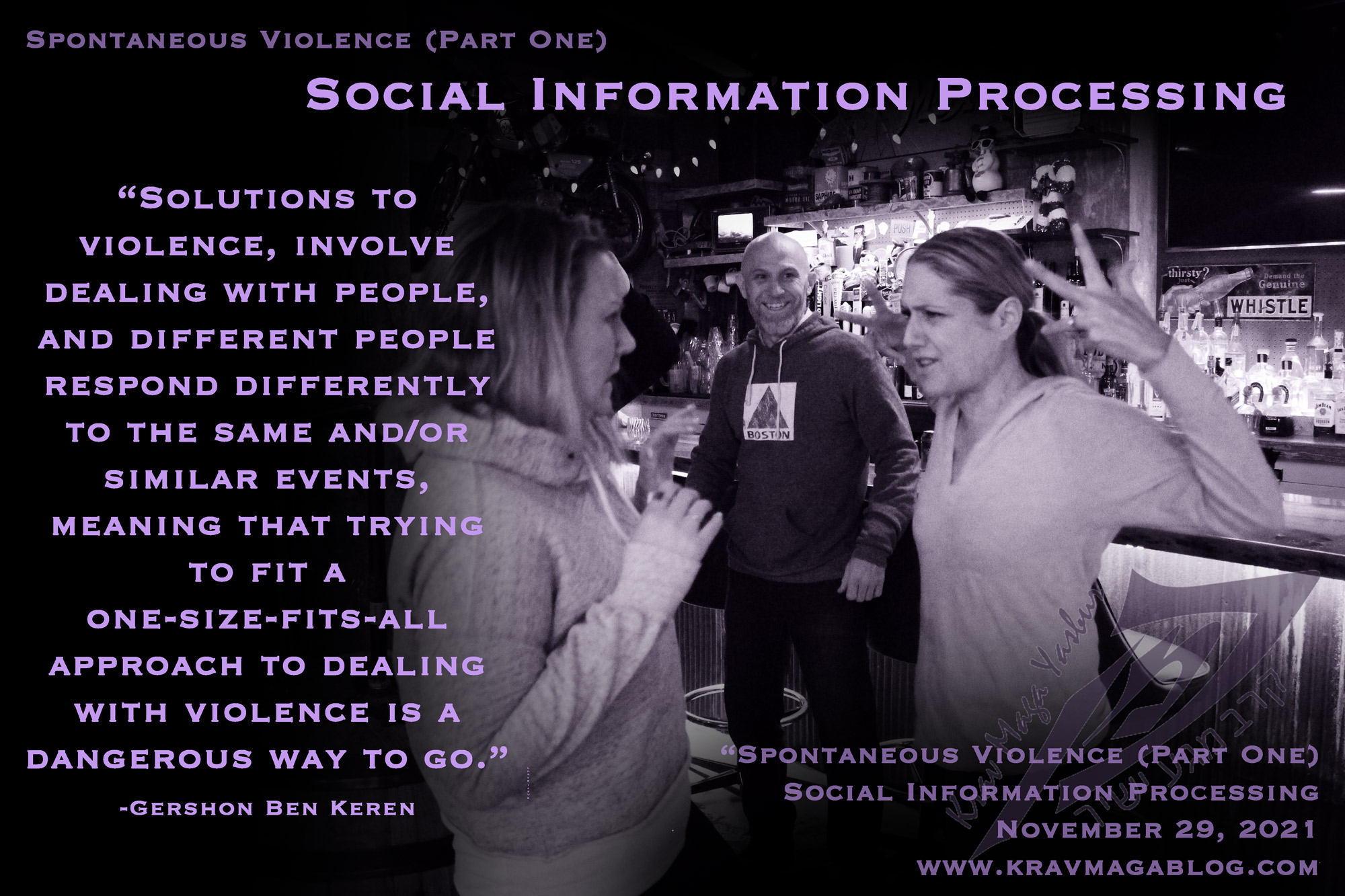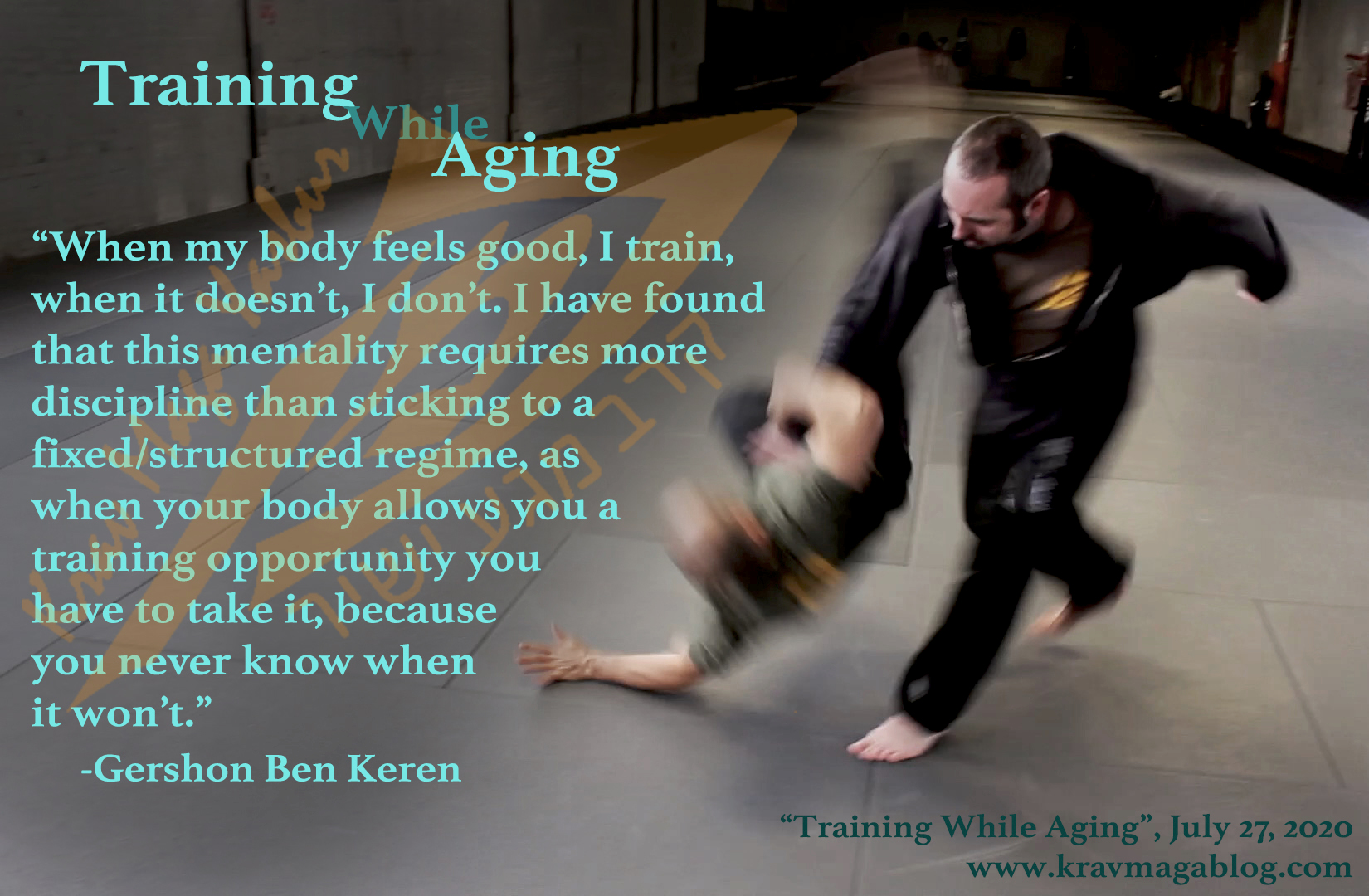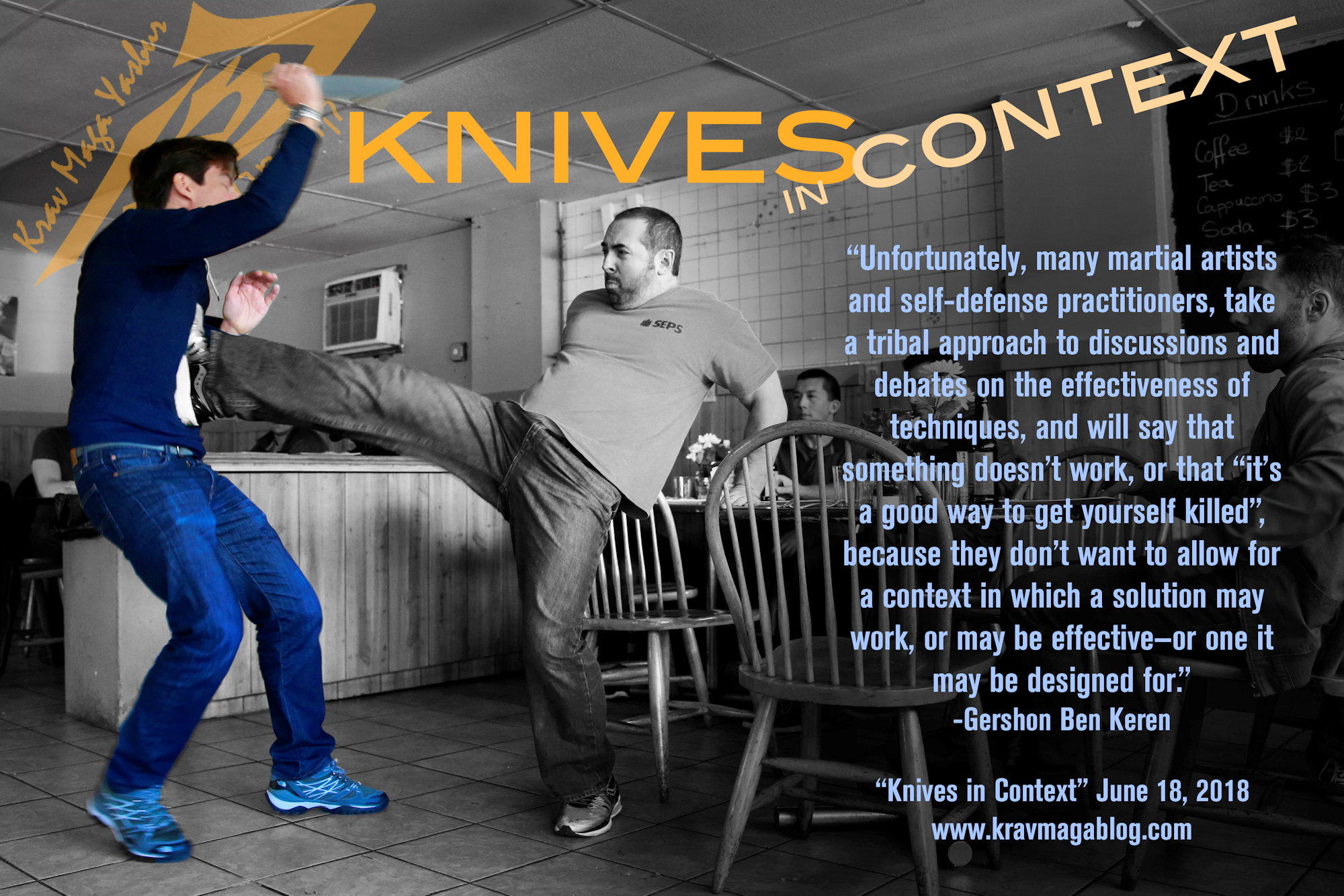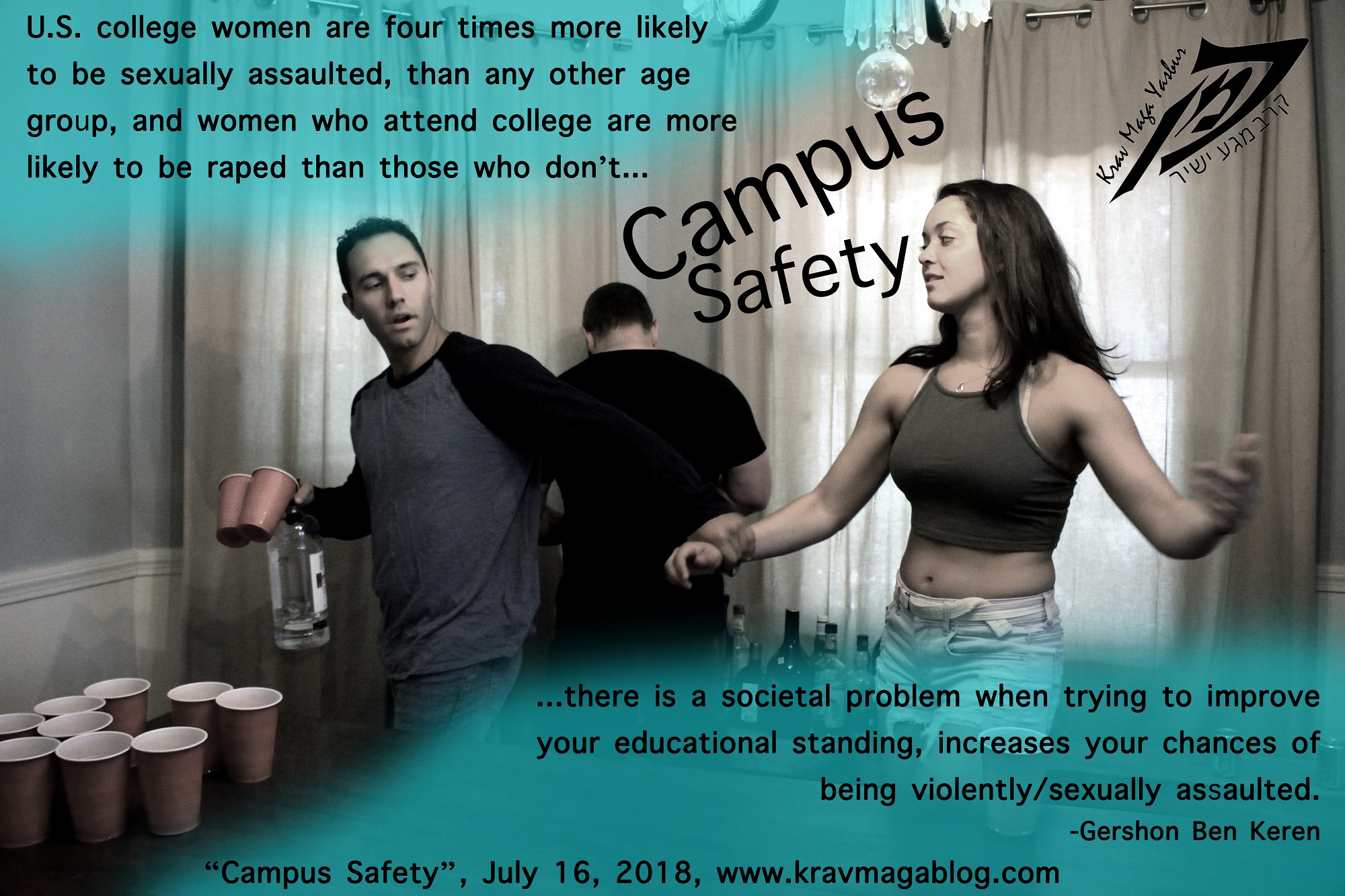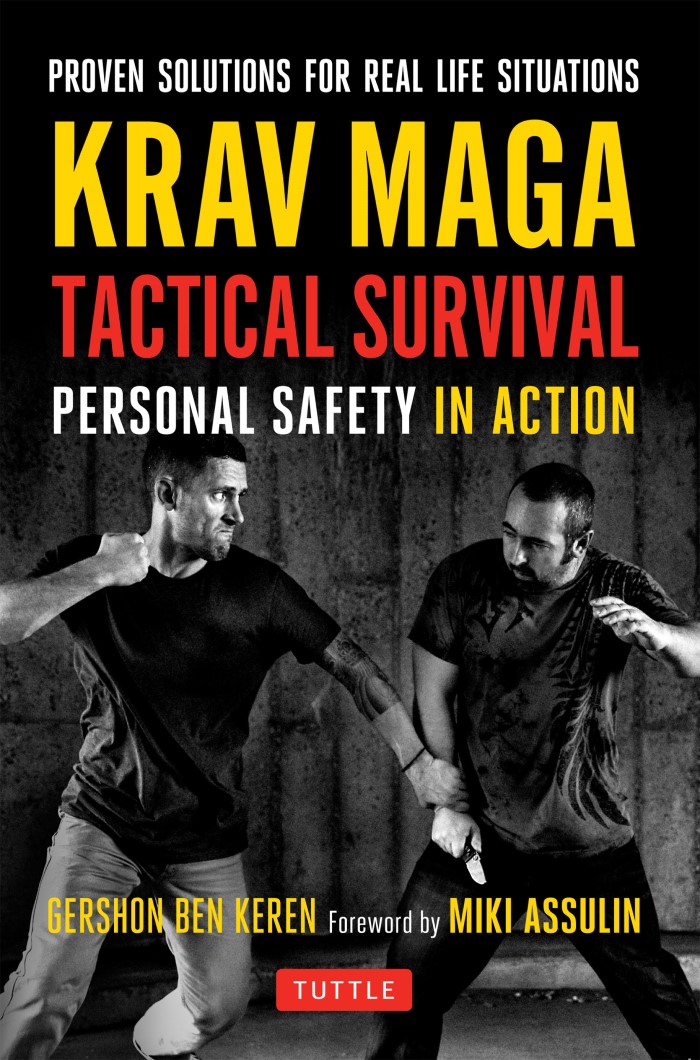Campus Safety, is an article written by Gershon Ben Keren, a 5th Degree Black Belt in Krav Maga, who teaches Krav Maga in Boston, MA. He has also authored three Amazon best-Selling Books on Krav Maga.
If I only had 60-minutes to teach someone how to protect themselves, most of that effort would go into how to predict, identify and prevent violence, rather than physical solutions – firearms advocates may suggest that this time would be better spent learning how to shoot; however I would argue that even if technical proficiency could be acquired in this short time frame, along with a tactical and legal understanding of the “how and when”, to use a firearm, if the individual wasn’t able first to identify and recognize a threat, it matters little what tools they are equipped with. Next weekend, we run our free annual campus safety seminar; 90-minutes of teaching young women how to recognize potential dangers – without becoming paranoid – and avoid/disengage from them, and some basic physical solutions for dealing with certain types of attack etc. In this article I would like to share some of the things that have come out of these seminars over the years, in case there is something that may prove useful to others, when conducting similar training(s). Please feel free to take or leave anything in this article, as I would never prescribe how anybody should teach their material, etc.
One of the biggest impacts I’ve found – which surprised me—when talking about the consequences of rapes and sexual assault, for women at college, was not the psychological or emotional trauma caused by such sexual violence, but its potential financial impact(s). It is important to note that I’m not making any judgments here, but simply stating my experience(s) from teaching personal safety to young women about to go off to college/university. Firstly, according to certain statistics, U.S. college women are four times more likely to be sexually assaulted, than any other age group, and women who attend college are more likely to be raped than those who don’t; there is a societal problem when trying to improve your educational standing, increases your chances of being violently/sexually assaulted – and this is to some degree a structural issue of gender inequality, which needs to be addressed. So, when we are conducting campus safety seminars, without being overly-dramatic, we are talking to a potentially “at risk” population.
It is hard to convey the traumatic effects of being raped without the possibility of causing trauma yourself, however listing some of the effects of trauma, such as anxiety, depression, the inability to sleep and/or concentrate/focus, etc., often fails to communicate the devastating consequences of rape/sexual assault. Where I have gained reaction/response is when I’ve talked about the number of women who have dropped out of college as a result of being assaulted, who have been burdened by student debt, and without a university degree, are denied better employment opportunities and so earn less, etc. When survivors of rape do stay on to finish their studies they often find that their GPA’s (not surprisingly) have dropped, after the assault. It’s not that I think young women don’t appreciate the emotional and psychological costs of being raped, but rather that the financial costs are often far more evidential and tangible. Going to university/college is a time when you look forward to fulfilling dreams and aspirations, and understanding how a sexual assailant could take these away from you, highlights one of the long-term consequences of rape/sexual assault – it also demonstrates that what to the rapist is but a moment in time is a life-changing experience for the victim, and should never be discounted as simply “20 minutes of action” (nor be excused as a result of drinking) as Brock Turner’s father described his son’s rape of a college student.
An argument that I’m often met with when I talk about the importance of personal safety – especially concerning sexual violence— is that it shouldn’t be the responsibility of the potential victim to take measures to stay safe, but rather it should be the responsibility of the potential assailant/rapist not to attack/assault. I agree with this argument, however whilst attackers/rapists continue to not take responsibility for their actions it’s somewhat of a moot point; Brock Turner, and his father, argued that his raping of an unconscious victim was the result of alcohol consumption, however when he was caught/disturbed he ran i.e. hew knew what he was doing was wrong, despite being drunk. Still, he doesn’t take responsibility for what he did – and this is true for the majority of rapists. If, after the fact, they won’t take responsibility, it is highly unlikely that they will before, or during, the assault. I agree that it is not fair that we have a need to protect ourselves against violent and predatory individuals, when we don’t act that way towards others, however unfortunately when it comes to staying safe, this point of view isn’t a luxury we can afford.
One of the biggest difficulties I have when talking to young women about to go to college, or who are in their first few months on campus, is that your dorm room, is not akin to your bedroom at home, and the halls of residence are not comparable to your home i.e. you have not simply transferred from one location to another, with everything else staying the same. At home, you can (usually) trust those you live with not to steal your things and/or cause you harm; and this may not be the case on campus, e.g. there may be students who will steal your textbooks given the opportunity, despite living in the same halls as you – I’m back at university doing a second Masters, and three text-books I am using for a particular part of my course may have a total value of around $500 (more than the current value of the laptop I am using now) etc. There is a real danger of thinking that everybody coming to a university, shares the same background, moral compass, and aspirations as yourself, and so trust them as you would trust yourself, etc. however the truth is, this is not the case, you are living in a very mixed environment, that is vastly different from your home.
This is the 6th year, we have offered this free seminar, and the 90-minutes we have is a great opportunity to get across as much relevant and practical information as we can, however if we had a few years beforehand we would have been able to teach so much more. If you are a parent with a 15 or 16-year old, or younger, please think about starting training soon. Even those young women who have been training with us for a number of years we advise to take this seminar, as it focuses on a specific time of life, in a specific environment, which has its own threats and dangers. If you live in Massachusetts/New England – or know somebody who does – and are off to college/university this Fall, you can sign up for next week’s seminar by clicking here. If you aren’t able to attend, we have a free website addressing campus safety which you can access by visiting our womens self defense site: www.womensselfdefenseboston.com.
0 COMMENTS